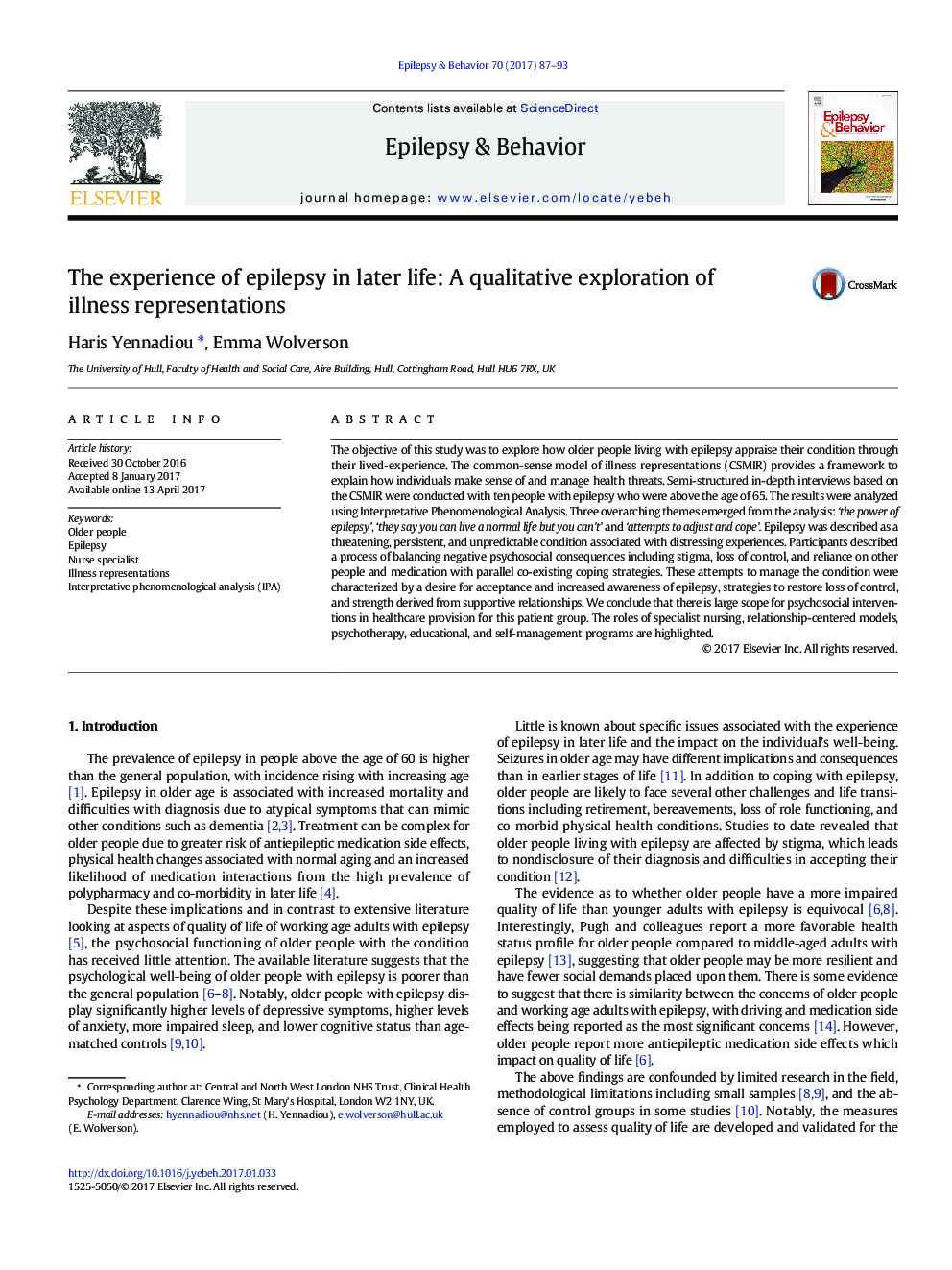| کد مقاله | کد نشریه | سال انتشار | مقاله انگلیسی | نسخه تمام متن |
|---|---|---|---|---|
| 5628291 | 1406370 | 2017 | 7 صفحه PDF | دانلود رایگان |
- Older people with epilepsy conceptualized their condition as threatening, persistent, and unpredictable.
- Themes illustrated a parallel process of balancing negative psychosocial consequences with coping strategies.
- Psychosocial consequences included stigma, loss of control, and loss of independence.
- Attempts for coping included a desire for acceptance, increased epilepsy awareness, and strategies to restore control.
- Supportive relationships also had a key role in coping with the negative impact of epilepsy.
The objective of this study was to explore how older people living with epilepsy appraise their condition through their lived-experience. The common-sense model of illness representations (CSMIR) provides a framework to explain how individuals make sense of and manage health threats. Semi-structured in-depth interviews based on the CSMIR were conducted with ten people with epilepsy who were above the age of 65. The results were analyzed using Interpretative Phenomenological Analysis. Three overarching themes emerged from the analysis: 'the power of epilepsy', 'they say you can live a normal life but you can't' and 'attempts to adjust and cope'. Epilepsy was described as a threatening, persistent, and unpredictable condition associated with distressing experiences. Participants described a process of balancing negative psychosocial consequences including stigma, loss of control, and reliance on other people and medication with parallel co-existing coping strategies. These attempts to manage the condition were characterized by a desire for acceptance and increased awareness of epilepsy, strategies to restore loss of control, and strength derived from supportive relationships. We conclude that there is large scope for psychosocial interventions in healthcare provision for this patient group. The roles of specialist nursing, relationship-centered models, psychotherapy, educational, and self-management programs are highlighted.
Journal: Epilepsy & Behavior - Volume 70, Part A, May 2017, Pages 87-93
